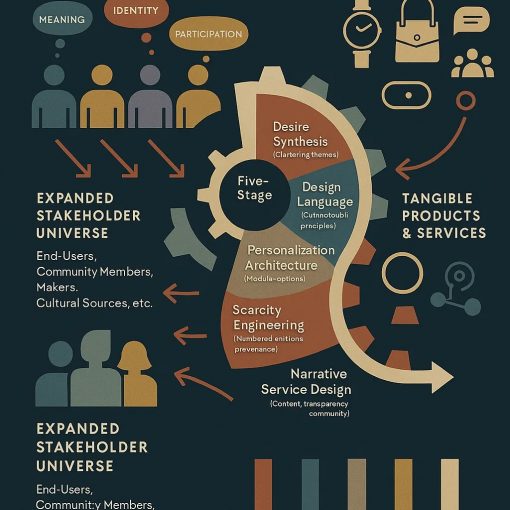Executive Summary
For decades, Western engagement with the developing world followed a “survival-of-the-fittest” script. See Part1: Darwinian Philosophy in Western Politics and Economics: Part 1 and Par2 : Darwinian Philosophy in Western Politics and Economics – Part 2 . Growth arrived for a few, but volatility, dependency and ecological loss defined the median experience. This long read proposes an alternative—Accelerated Cooperative Development (ACD)—that keeps the innovative spark of competition yet embeds safeguards for equity, resilience and sustainability. The framework weaves PESTLE-C+ analysis (Political, Economic, Social & Educational, Technological, Legal, Environmental, plus Cultural) together with ethical, historical and geopolitical lenses to chart a realistic route to shared prosperity. See appendices for:
Substack Post: Darwinian Philosophy in Western Politics and Economic Part 3: A Post-Darwinian Development Pathway for the Global South
Appendix A | Implementation Timeline
Appendix B | Risk Register
Appendix C | Development Accelerator Frameworks
Appendix D | Accelerator Opportunity Catalogue
Appendix E | Novel Accelerator Concepts & Pilot Ideas
1. From Darwinian Rivalry to Cooperative Acceleration
Colonial extraction, conditional lending and asymmetric trade once equated “success” with, out-competing weaker states. The result was commodity lock-in, institutional fragility and widening inequality. In the 21st-century context of climate risk, digital interdependence and South-ward demographic momentum, zero-sum rivalry is self-defeating. Mutual capability-building must take centre stage

3. The Accelerated Cooperative Development (ACD) Framework
- Co-Owned Finance – Convert conditional aid into joint-governed development trusts capitalised by both creditors and recipients.
- Technology as a Global Public Good – Levy a micro-fee on cross-border data flows to fund open-source platforms for health, agriculture and climate tech.
- Mutual Accountability – Pair debt relief with measurable governance reforms; release tranches only on verified milestones.
- Participatory Policy Space – Institutionalise citizens’ assemblies that include women, youth and marginalised groups in national planning.
- Aligned Climate Action – Embed carbon-border rebates tied to certified emissions cuts, rewarding early adopters in the South.
- Capacity-Building Transfer – Twin African, Asian and Latin-American universities with OECD peers to co-author patents and curricula.
- Anti-Corruption and Transparency Measures – Establish mandatory public disclosure of all development contracts, implement real-time monitoring of wealth transfers between developed and developing nations, and create binding international protocols to prosecute cross-border bribery in development finance.
- Reformed Offshore Banking Governance – Mandate beneficial ownership registries for all offshore financial structures involved in development funding, implement standardised anti-money laundering protocols across all participating jurisdictions, and establish automatic information exchange mechanisms for development-related financial flows.
- Contract Transparency and Legitimacy – Require all development contracts to undergo independent legal review for compliance with national sovereignty principles, publish full contract terms in local languages within 30 days of signing, and establish citizen-accessible databases tracking all financial and non-financial aid commitments and disbursements.
- Comprehensive Aid Visibility – Create unified tracking systems that monitor both financial transfers and in-kind assistance, establish quarterly public reporting on aid effectiveness metrics, and implement third-party auditing of all development finance flows to ensure funds reach intended beneficiaries.
- Global Virtual Governance Platform – Establish a comprehensive digital mirror of real-world governance systems accessible to all populations worldwide, enabling participatory democracy and policy simulation across multiple interconnected dimensions:
– Political Dimension – Virtual representation systems allowing citizens to engage in policy deliberation, voting simulations, and cross-border political dialogue
– Economic Dimension – Real-time economic modelling tools enabling communities to test development scenarios, trade agreements, and resource allocation strategies
– Social & Educational Dimension – Collaborative learning platforms connecting global educational institutions with interactive curriculum development and skills-sharing networks
– Technological Dimension – Open innovation hubs facilitating technology transfer, patent sharing, and collaborative research between developed and developing regions
– Legal/Governance Dimension – Comparative legal frameworks enabling jurisdictions to model regulatory changes and harmonize international cooperation mechanisms
– Environmental Dimension – Integrated climate monitoring and policy simulation tools allowing communities to model environmental interventions and track collective impact
– Cultural Dimension – Digital cultural preservation and exchange platforms promoting cross-cultural understanding and protecting indigenous knowledge systems
– Ethical & Moral Dimension – Global ethics councils facilitating dialogue on development priorities, human rights standards, and moral frameworks for international cooperation
– Innovation & Adaptability Dimension – Dynamic policy testing environments allowing rapid prototyping of governance solutions and adaptive management systems
– Geopolitical Dimension – Conflict prevention and diplomacy simulation tools enabling peaceful resolution of resource disputes and territorial concerns
– Historical Context Dimension – Comprehensive historical databases informing contemporary policy decisions with lessons learned from past development interventions
– Infrastructure Dimension – Collaborative infrastructure planning tools enabling coordinated regional development and resource sharing optimization
– Population Dimension – Dynamic demographic mapping systems tracking skills distribution, population movements, and accessibility needs to inform targeted development interventions
4. Some Sector-Specific Accelerators

The best process would be to look at specific a Standard Industrial Classification code and similar framework for all Development country Sectors . The UK has the United Kingdom Standard Industrial Classification (UKSIC), whereas America uses North America Industry Classification System (NAICS). The UN has the United Nations Sustainable Development Cooperation Framework (UNSDCF).
5. Conclusion
Abandoning survival-of-the-fittest geopolitics does not neuter innovation—it redirects it. When markets are structured for fairness and resilience, every productivity leap reverberates through global demand, carbon mitigation and social stability. As the Global South gains equitable agency, the North secures sustainable markets and a safer planet—proof that competition without cooperation is yesterday’s game.
Appendices
Appendix A | Implementation Timeline


Appendix C | Development Accelerator Frameworks
- Selection & Assessment – Country-readiness diagnostic → feasibility matrix → weighted scoring.
- Implementation Phases – Prototype → Scale-up → Institutionalise, each with clear decision gates.
- Success Dashboard (Year 5 targets) – GDP-per-capita + 15 %; multidimensional-poverty – 20 %; CO₂ /unit GDP – 25 %; Open Data Budget Score ≥ 80; domestic patent filings × 3.
- Cost-Benefit Template – Monetise benefits over ten years at a 5 % social discount; shadow-price biodiversity and cultural assets.
Appendix D | Accelerator Opportunity Catalogue

Appendix E | Novel Accelerator Concepts & Pilot Ideas

Appendix F | Next-Generation Accelerator Catalogue for Global South Development







